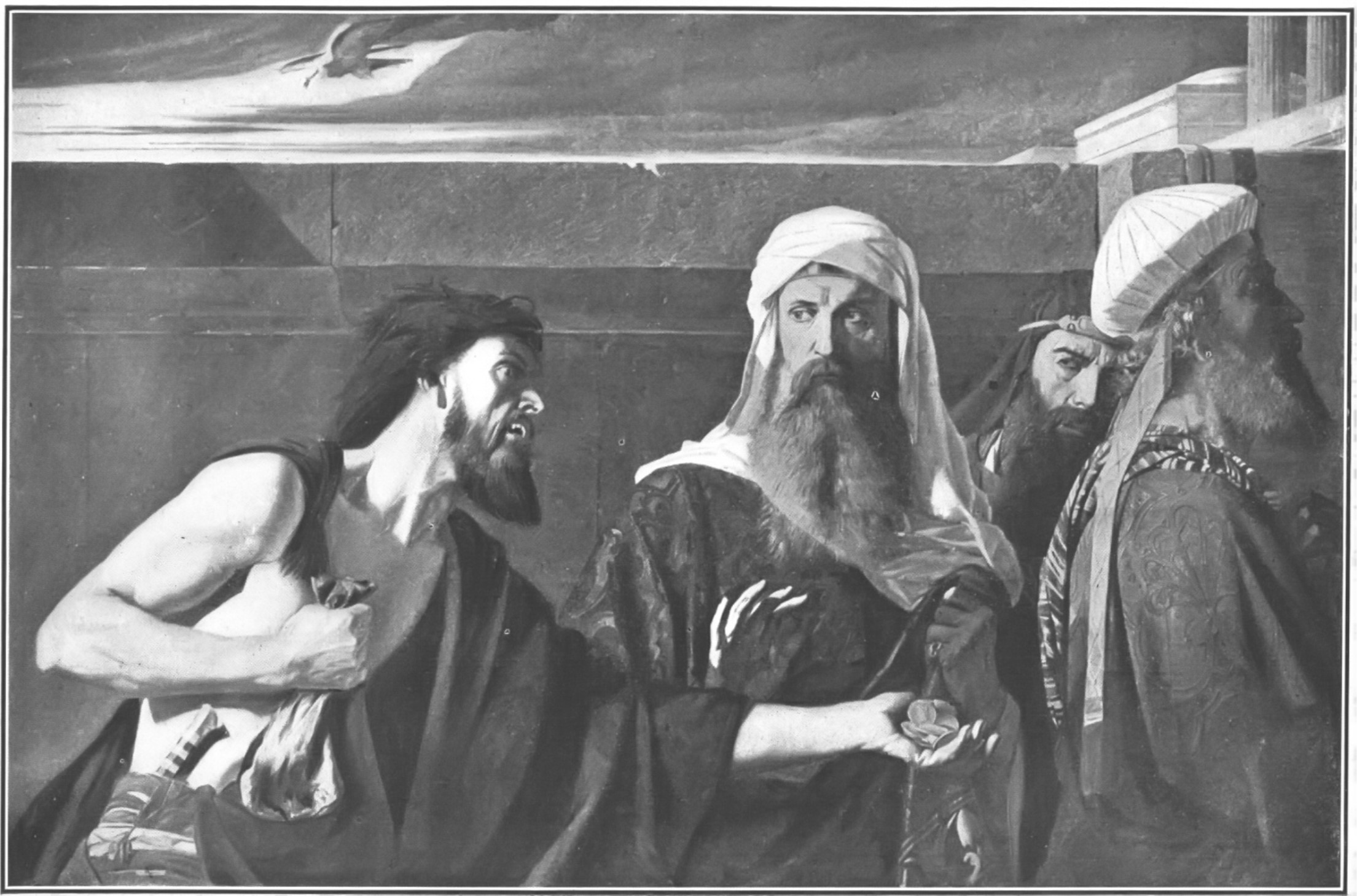I walked onto my first shift in the hospital with a sense of fearful confidence. My blue shirt was freshly ironed, and my “New Volunteer” badge was hanging from my neck. It felt like a safety net in case anything went wrong.
Just days before, I had received my assignment: Child Life Services, Pediatric Oncology and Hematology. Up to that point, being around children who were wrestling to get free from death was only a distant idea. I’ve watched the show “Scrubs” 3 or 4 times over, but that can only prepare you so much. There are moments in a person’s life that shape and define them. I did not know that day I would experience one of those moments.
I stepped onto the unit and walked over to the patient board. At first I was happy – I saw that in just a few minutes a magician would be coming to entertain the kids. The fear in me wanted to wait to do anything until he got there. Maybe I can just disappear behind him today, after all he is a magician and it is my first day.
I knew that wasn’t what I was there for, so I set myself to the task of looking over the patient board. That’s when I was hit with a punch right to my sternum. The first patient on the list: 3-year-old. Female. Are you kidding me? Perhaps noticing a look of shock on my face, the nurse standing next to me looked over and said, “She’s been having a really rough morning and has been crying non-stop. There’s probably nothing you can do.”
Maybe not, but I wanted to try. I walked over to her door, squirting the hand sanitizer in my hands along the way (foam in, foam out). I knocked – no response. I slowly opened the door, and like a tidal wave I was hit by multiple forces all at the same time.
There she was on the bed, tears in her eyes. She had a look of sadness and confusion across her face. What can a 3-year-old possibly grasp in terms of what it means to have cancer? It took everything I had to repress the human instinct of shock and disbelief about what was playing out before me. What kind of world would be so cruel to allow this poor girl to be in so much pain?
Her father – perhaps thinking I was on the medical staff – rushed to the door with a huge sigh of simultaneous despair and relief. He had been waiting for someone to come and relieve him so he could go check on her food. I promised I would stay with her until he got back.
As I walked over to her bedside, I began to take it all in. There were tubes and wires hooked up to every limb of her body. She had those sticker fake-earrings on, highlighting the beauty and innocence of such a small child. Strands of her hair covered the bed.
The crying never stopped. I tried everything I could possibly think of. Noticing the sparkling glitter paint near her bedside, I even began to draw things on my face. It only brought a few seconds of relief. Eventually the poor child ran out of energy, and She laid down and quietly sobbed to herself. It was all I could do to just rub her back and pray for her silently as we waited for her dad to return.
As I was rubbing her back, I looked over to the nightstand and saw a book. I drew closer and saw that it was a book by a popular “health and wealth” preacher. This book promised that Jesus would heal you if you simply had strong enough faith. Rage welled up inside of me, followed by incredible sadness.
“Have strong enough faith, and you will be healed!” – that’s what they all say. But what happens when healing never comes? Well, the implication is obvious: your faith isn’t strong enough. Your daughter died, even though you believed? Where was your faith? You’ve failed her.
It is a repulsive and damnable teaching.
And yet, we are all prone to believe this to one degree or another. Our default setting as human beings is to believe that we can earn something from God or manipulate him to meet our needs. The self-help messages of our day which we see plastered all over social media tell us to look inside of ourselves for hope and strength. These messages only feed our default responses in times of great distress and sorrow.
Now here is the great dilemma: your faith – your strength – it will fail. I promise you. When the diagnosis comes, when the car accident happens, when you get that phone call – your faith will fail. Maybe not within the first hour, maybe not on the first day, maybe not even in the first week. But it will. We must learn how to turn to the promises of God rather than our own strength each and every day. The Psalmist said it well:
My flesh and my heart may fail,
but God is the strength of my heart and my portion forever. (Psalm 73:26)
Where will you turn when suffering and affliction comes? Who will you trust? The power and strength of your faith? Or the eternal and trustworthy promises of God?
Promises concerning who you are: loved (Deuteronomy 7:7-8, Jeremiah 31:3), adopted (Romans 8:15, Ephesians 1:5), chosen before time began (Ephesians 1:4).
Promises concerning whose who are: brothers and sisters of Christ, sons and daughters of God (Romans 8:16-17).
He knew you – therefore you are no accident. He chose you – therefore you are not a zero.
Todd Billings is a Christian Theologian who has been diagnosed with an incurable cancer. In his book Rejoicing in Lament, he recalls a sermon from one of his professors many years ago. The professor was reminding his students that their life is hidden with Christ in God (Colossians 3:3). The professor then said, “Remember that, please, when you’re only in your thirties or forties, or your fifties or sixties, and the doctor says it may not be benign.”
There is good news that our life is hidden with Christ in God. As Billings reminded me in his book, it’s not our job to write out the chapters of our lives nor to control God when we feel like we need him the most. Our job and highest act of faith is to be satisfied in knowing who and whose we are.
Dear friend, whom will you trust? Where will you turn?
Recently, one of my non-Christian friends asked me a provocative question: “What are your thoughts on the evolution of the feeling of the presence of God?” As I re-type this question, I’m reminded of just how much of a mouthful it was for me to understand. If you’re anything like me, this question throws you a little bit off balance. I have thoughts on evolution, and I have thoughts on what it means to feel the presence of God – but trying to understand the two together? Fortunately, I was in a situation where a few other people were able to respond to the question before me so I could develop a somewhat intelligent when it was time for me to contribute!
This friend of mine introduced me to the work of computational biologist John C. Wathey and his book, The Illusion of God’s Presence. In this book, Wathey investigates the trans-cultural phenomenon of what it means for an individual to feel the presence of God. What he endeavors to show is that this “illusion” of God’s presence can be attributed to neural circuitry that evolved to strengthen the mother-child bond. In other words, infant humans grew accustomed to crying out to their mothers for nursing and comfort. As humans evolved and aged, this genetic instinct for a child to cry out to a mother grew into an instinct for an adult to cry out to an even higher being. Wathey argues that religion and the presence of God fill an emotional and cognitive hole left over from infancy.
Now, I’m still working through the fullness of Wathey’s argument to understand it better. However, I do know that Wathey points to numerous evidences to make his case. Some of these evidences include patterns of infantile imagery across religions, as well as studies of the brain in individuals when they claim to “feel the presence of God.” All of these evidences are used to make the case that this feeling of the divine presence is a product of natural evolution in human beings.
In no way do I think Wathey is necessarily anti-religion or anti-God, nor do I think that is the motivation for his research. However, his work does communicate a certain assumption that is made in our culture today; that if we can prove a supernatural phenomena by natural means, it is no longer supernatural. Let me explain.
There is an increasing polarization between science and faith today. On one side is a line of reasoning which emerged in the early/mid 20th century from evangelical fundamentalists. Their views on science and faith heightened God’s supernatural work in the world to the degree that his involvement in the natural order was downplayed and almost dismissed entirely. However, on the other side arose a line of secular/naturalistic thinking which so greatly emphasized the natural order that the supernatural was no longer necessary. I like to think of these two views as either “extreme supernaturalism” or “extreme naturalism.”
It is my estimation that Wathey – and others like him – fall more into the second camp. This group will use research like what is put forward in Illusion to make the case that since we can now prove why a given supernatural phenomena exists, all supernaturalism is simply a byproduct of evolution. We may not be able to explain all supernatural phenomena at this time, but the fact that we can explain some means that we will eventually be able to explain supernaturalism away.
However, both of these extremes ignore a very crucial and significant point. You see, Christianity is built upon the foundational idea that the Supernatural become natural; that the eternal Son incarnated himself in the form of a man (John 1:14, Rom. 8:3, Phil. 2:6-8). This Godhead has now united us to himself forever by his Spirit (Rom. 8:9, Eph 3:17, 4:22). The God-man now lives in the form of both the supernatural and natural; in addition, he has united the natural man to himself supernaturally through the Spirit.
So you see, Christianity is neither extreme supernaturalism nor is it extreme naturalism, instead it is a kind of natural supernaturalism. The trajectory of history is one of restoration, as God supernaturally restores and reconciles the natural order unto himself (Acts 3:21, Revelation 21:1-4).
Many Christians are troubled when they hear of research which seems to explain divine actions or activity. However, we not not fear such scientific discovery – we should embrace it. The reason for this is because given the inseparability of the supernatural and the natural in Christ, we should expect to find natural explanations for God’s work in the world.
Now, I don’t buy into Wathey’s conclusions – I think they’re largely an interesting theory. However, I would argue that any true conclusions which come from his research only make sense from a Christian worldview. It is only there where we find a consistently rational explanation for supernatural occurrences in the natural world. What a time to be alive in redemptive history, when we are able to discover more about God’s activity in the cosmos through the natural means he has given us!
Then one of the twelve, whose name was Judas Iscariot, went to the chief priests 15 and said, “What will you give me if I deliver him over to you?” And they paid him thirty pieces of silver. 16 And from that moment he sought an opportunity to betray him. – Matthew 26:14-16
Then when Judas, his betrayer, saw that Jesus was condemned, he changed his mind and brought back the thirty pieces of silver to the chief priests and the elders, 4 saying, “I have sinned by betraying innocent blood.” They said, “What is that to us? See to it yourself.” 5 And throwing down the pieces of silver into the temple, he departed, and he went and hanged himself. – Matthew 27:3-5
—–
Judas, you fool!
Thirty pieces of silver stood between the life and death of the Son of Man.
A crucified Christ in exchange for thirty pieces of coin.
Thirty pieces of coin offered in exchange for the sinful desires of one man.
Judas, you dog!
How could you betray the King of Kings, the Lord of Lords? The one whom you had personally served for three years? You cast down your coins not because you were grieved by your sin, but because you were grieved by the consequence of your sin. It was too late.
The good news of the resurrected Christ is that it is never too late to throw down your thirty pieces of silver in faith and repentance.
Ben, you fool!
One piece of coin for my greed…
One piece for my lust…
One for my pride…
One for my envy…
One sliver of silver for my self-righteousness…
Who is the real Judas, Iscariot or the one who follows after him?
Ben, you dog!
Every day that I wake up I am faced with a choice: hold on to my thirty pieces of silver, or cast them down before the Lord.
My thirty pieces of precious sin stand between life in or death at the hands of the Son of Man.
Because a crucified Christ has already been exchanged for my thirty pieces of coin.
Thirty pieces of coin cast down in exchange for the life of One Man.
Will you cast down your silver, or clutch it tightly?
—–
And you, who were dead in your trespasses and the uncircumcision of your flesh, God made alive together with him, having forgiven us all our trespasses, 14 by canceling the record of debt that stood against us with its legal demands. This he set aside, nailing it to the cross. – Colossians 2:13-14
I recently stumbled upon a document I wrote to myself to try and process an intense dream I had in late 2011. This is really the only time I’ve ever had a dream so intense that I had to try and write it out to process everything. I’m calling this event “The Episode.” I’ve edited out a few details, but for the most part you’re getting a raw exposure into my head from late 2011. Enjoy…
—–
This is a result of an episode that occurred on 11/5/2011 at approximately 2:30 A.M. Unable to fall asleep, I had a 20-30 minute episode that was essentially a “broadcast” – this is what I am calling it – that was a stream of every sermon, book, scripture, conversation, article, song, experience, etc…that I have read/heard/discussed in the last 18 months. It was incredibly intense.
To be exact, it has been almost 18 months to the day since I went out and had my debaucherous episode in anger and frustration that broke me and brought me to my knees. Is it a coincidence that this “broadcast” occurred almost 18 months exactly to the date? I believe it was somewhere in the first 15 days of May 2010 that I was broken, and sometime in the second half of the month that I came to saving faith.
I’m not sure if anything happens coincidentally. Does this 18 month mark mean something? Have I gotten to the point where the LORD is now going to grow and stretch me further? I believe the knowledge I am processing is in preparation for something more. A new job? Ministry? Seminary?
This broadcast connected several dots for me amongst many things I know. It is my prayer that the LORD will connect even more dots as I write now. At least that is the plan.
The next several pages are going to be essentially the core – if not everything – I know to be true as it stands about the LORD. Who He is, the gospel, His nature, the Trinity, what it means for my life…
What is the gospel?
God created us out of love, to be in relationship with him.
Genesis tells us that God called out to the man in the garden – “Where are you?” He knew where Adam was, but this was an expression of His hurt and anguish over what was to come next. God knew this would begin the time when man would be separate from God because of the penalty of man’s sin.
Why then, did he create us? I’ve tried to fit this into the best example that I could, but any attempt to humanize God is ultimately flawed. I will do my very best to describe it.
I knew before I got my dog Beau that I would one day have to say goodbye to him. I didn’t know how attached to the dog I would become, nor do I know how much pain his death will ultimately bring me. This is, of course, unlike God in that He knew the pain our sin would cause, but His love for us and desire for us outweighed this pain.
This knowledge of Beau’s ultimate passing did not stop me from getting him. Even now, I would not attempt to make an argument such as “If I got rid of him now, the pain now would be less than the pain in the end.” This would be a lie. Do I love Beau any less now than I will on the day of his death? No – my love for him is unconditional – or as unconditional as a man can get for his canine companion. I will have more experiences, more memories of Beau in the end – but will this not only bring me joy?
In the same way, we cannot say God would not create us because of the pain sin would cause. Nor can we say that, because of sin, God would try to shorten our time to be in relationship with Him. God knew we would cause Him pain, but He also knew we would bring him joy. And that, of course, there would be a way for us to remain in Him for eternity. This is where my analogy is most significantly flawed. Once Beau leaves this world, I will only have his memory to hold onto.
Once sin entered our lives, we became eternally separated from God. What does this mean? Romans says that the wages of sin is death. We deserve death for our transgressions, an eternal death that results in being cast to the lake of fire. Scripture also says that sin entered through the one man, Adam. David laments over our sin when he cries our “Surely, I was sinful at birth…” We knew from the beginning that if we broke the law, we would surely die.
If death is a result of sin, the penalty of which is eternal punishment in hell (The parable of Lazarus and the rich man, etc.), what then? All sin can only be justified through the sacrifice of blood – Leviticus, verified by the author of Hebrews – but the problem is we continue to sin. God established the sacrificial system, but this did not prevent us from sin. God established more law, but this only leads us into more sin. Romans continues that the law was added so that the trespass might increase. The implication of “increase” in this context is that our fault would be more obvious at the coming of Christ. For, what is the need of a savior if we don’t know we are doing anything wrong? By having the law as a standard, we know we cannot keep it perfectly.
I will try another analogy. In grade school, it was known to us that by keeping the rules and working hard, we would be praised by our teachers and ultimately our parents. If we broke the rules, or slacked in our studies, we received punishment and poor grades. What would be the incentive to try and do will if there was not a consequence for doing wrong? Or a reward for doing right? Similarly, what incentive is there to strive to be Christ-like if there is no punishment for our wrongdoings?
This is again a flawed analogy, of course, because this leaves out grace and the love poured out for us at Calvary. As far as I know, no teacher ever died that I might get an “A” in social studies.
I’ve been struggling the last few nights trying to figure out what is going on in this head of mine. Inspiration for writing has been lacking.
In addition to what I am already trying to process, I’ve been struggling with much temptation lately. Compulsion and greed take over the very heart of me. What is it that triggers these compulsions? Can I simply blame a rush of hormones or being a male? This is no excuse. Christ was able to avoid all temptation. Why am I unable to follow in his footsteps consistently?
I previously establish that no one is saved under the law. Why? Because the only thing the law does is show us our sin. To be fair, this is not all the law does as it reveals God’s character and His desire for our lives. It also points us to Christ.
And, as I pointed out, I cannot even stick to being free from temptation and compulsion. What does this mean? This means I have no way to hold the law. And if I can’t hold the law, I am a sinner.
Christ made a way for us by once and for all taking the sin punishment for all. He became like man to serve us. How amazing! God desired relationship with us so much that He sent Himself in Jesus, descended off the heavenly realm to become like us, to lead the lost sheep back to the shepherd, to give us an example, and to save us. We have a way to God through Christ! All we must do is confess and believe in our hearts and we are wiped clean, clothed with new garments.
If I have this God-man to look to, if I know He was beaten, tortured, and hung on a tree for me – why then can’t I stop giving into temptation? He paid the ultimate price for me out of love, why can’t I return the love shown by simply being obedient?
Paul says that what we don’t want to do, we keep on doing because of the sin nature alive in us. Will I ever stop sinning? Not until I reach heavens fates. But I can’t stop trying and being obedient.
Is it not similar to exercise? I’ll never be in perfect human shape, but I can aspire to train my body to stay healthy. If I stop exercising, what happens? It shows in the rest of my life. I get lazy, I eat worse, and I’m not as productive. Similarly, if I stop living by the spirit and trying to rid myself of sin, I will feel distant from God (although he is always near) and it will be apparent by my fruit.
—–
There you have it. My young in the faith mind from late 2011. I don’t think I ever finished writing down everything I wanted to, so that is all there is. I hope you enjoyed your stay inside my head!






